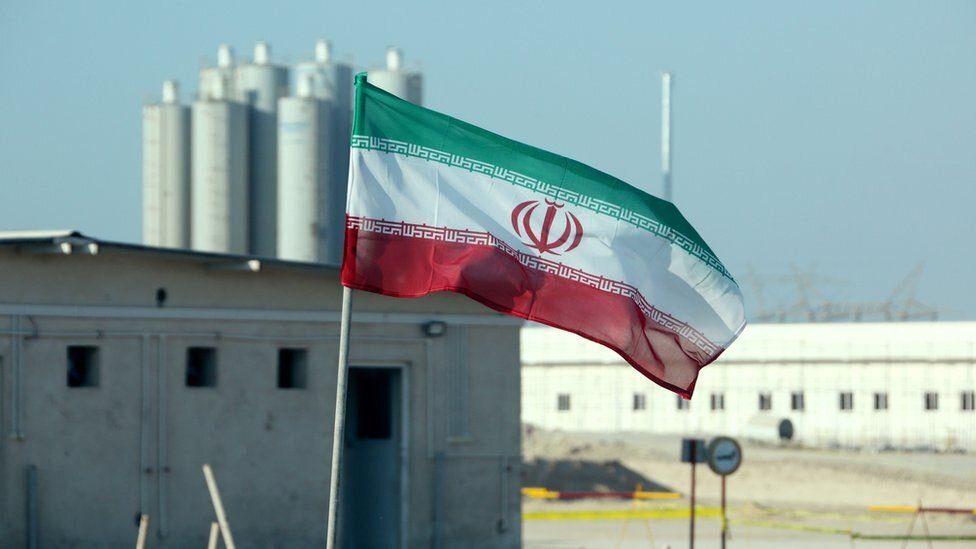The negotiations to revive the landmark nuclear accord have been at a standstill since August 2022.
Iran’s lead nuclear negotiator Ali Bagheri-Kani announced on Wednesday that he had a “serious and constructive” meeting with the European Union deputy foreign policy chief and mediator in Qatar.
As views were exchanged between the two side, Bagheri-Kani also “discussed a range of issues, including negotiations on sanctions lifting” with Enrique Mora.
The talks in Doha were held amidst an ongoing stalemate in efforts to revive the 2015 nuclear deal, formally known as the Joint Comprehensive Plan of Action (JCPOA).
The United States unilaterally abandoned the agreement in May 2018 under the former Trump administration, which also imposed crippling sanctions on the Islamic Republic.
However, negotiations to revive the landmark nuclear accord have been at a standstill since August of last year due to major sticking points between Tehran and Washington.
On Tuesday, reports pointed to a meeting between Bagheri-Kani – who also serves as Iran’s deputy foreign minister – and Mora in Doha, coinciding with a visit by Iranian Foreign Minister Hossein Amirabdollahian to the Qatari capital.
In a tweet, journalist Stephanie Liechtenstein claimed that the discussions between Bagheri-Kani and Mora revolved around Iran’s nuclear file, the situation of dual nationals imprisoned in Iran, and Tehran’s alleged support for Russia in the Ukraine conflict.
However, this report was made when no official confirmation of the meeting between Bagheri-Kani and Mora in Doha had been publicised. It is unclear if a Qatari representative was present at the meeting, however, Qatar has ramped up its unofficial role as a mediator between Iran and Washington by hosting a round of negotiations in Doha in June 2022 as part of efforts to revive the landmark nuclear deal.
In recent months, Qatar has received praise from Iran for its heavy diplomatic role in affairs between Tehran and Washington.
In late March, Tehran confirmed the Gulf country’s role in talks over the exchange of prisoners as well as the revival of nuclear deal.
“Qatar is always moving in the right track and has played a role in the prisoner exchange talks and the nuclear deal,” Amirabdollahian told Al Jazeera.
Increasing engagement
Bagheri-Kani and Mora are believed to have maintained a good relationship during the Vienna talks and have maintained a communication portal, including through personal meetings, since the negotiations stalled in September last year.
Last week, Bagheri-Kani mentioned that he had discussions with diplomats from three European countries in Abu Dhabi, covering various issues, including Iran’s nuclear program.
He also had talks with senior European diplomats in Oslo the previous month.
“We spare no opportunity to clarify our views and warn against certain miscalculations. We are determined on advancing our national interests, including through diplomacy,” he tweeted at the time.
In recent months, there has been increased engagement between Tehran and the UN’s nuclear watchdog, the International Atomic Energy Agency (IAEA), with Iranian nuclear officials stating that a dispute regarding an “undeclared site” had been resolved.
There are also reports of Iran and the US working out the details of a prisoner swap agreement, confirmed by Omani Foreign Minister Sayyid Badr Albusaidi, who highlighted Muscat’s role in helping de-escalate tensions between the two sides.
Efforts to salvage the 2015 nuclear deal gained momentum after Iran’s Supreme Leader Ayatollah Ali Khamenei expressed the possibility of reaching an agreement with the West on Iran’s nuclear programme as long as the country’s nuclear infrastructure remains untouched.
“There is nothing wrong with the agreement (with the West), but the infrastructure of our nuclear industry should not be touched,” he said in a meeting with the country’s nuclear officials and scientists.
IAEA bargaining chip
Since last year, the US and its European allies, the United Kingdom, France, and Germany, who are also members of the IAEA Board of Governors, have pushed for the agency to look into Iran’s alleged nuclear weapons development.
Seyed Mohammad Marandi, who is part of the Iranian negotiating team in Vienna, has maintained that Tehran will not sign the nuclear deal with Washington until the IAEA halts the files and investigations, Fars News Agency reported early June.
Marandi echoed Iran’s position on Grossi, adding that that Iran would be willing to sign the agreement “if the United States closes the case” at the IAEA and “accepts the text that both Iran and Josep Borrell saw as reasonable.”
Iran maintains the US and its allies are using the IAEA investigation to isolate it and put off the renewal of the nuclear accord.
Iran has also accused Israel of applying pressure to push for investigations and questioned the objectivity of Grossi, the current IAEA director, reports said.
Before the IAEA Board of Governors meeting in June of last year, Grossi travelled to Israel, which is not a signatory to the Treaty on the Non-Proliferation of Nuclear Weapons (NPT).
The NPT is the centrepiece of global efforts to inhibit the spread of nuclear weapons, including three elements, namely non-proliferation, disarmament, and peaceful use of nuclear energy.
Israel owns nuclear weapons. However, its refusal to join the treaty stipulates that it will not be subject to inspections, nor does it risk being sanctioned by the United Nations’ IAEA.







